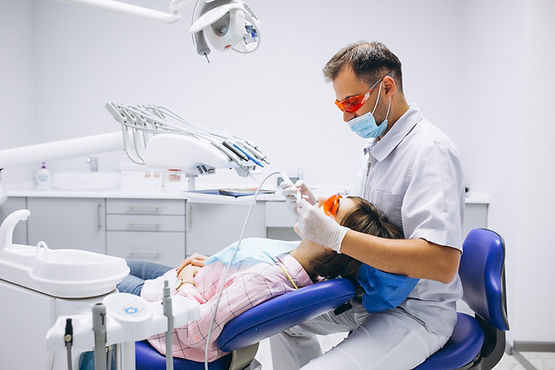Root canal treatment is a treatment method used to repair and save infected or decayed teeth. During root canal treatment, the pulp, which is the soft tissue in the natural cavity called the root canal inside the hard tissue of the tooth, and the dental nerve are removed, the inside of the tooth is cleaned and then the cavity is filled.
If tooth decay is not treated in time, the decay progresses deeper and causes inflammation of the nerves in the tooth. Inflammation of the dental nerves causes the person to experience severe toothache.
The dental nerve removed from the tooth is not vital for dental health and function, but it prevents a person from experiencing severe pain. It is a sensory nerve used only for the perception of heat and cold. If treatment is not carried out, abscesses can form with infection of the tissue surrounding the tooth.

Why is Root Canal Treatment Performed?
The nerve or pulp of a tooth can be destroyed, inflamed and infected by deep tooth decay, a crack or fracture in the tooth, or facial trauma.
If the nerve tissue or pulp of a tooth is damaged, this tissue breaks down and bacteria from around the tooth begin to multiply inside the root canal.
These bacteria and other decayed debris can cause infection or a tooth abscess. An abscess is a pus-filled sac and forms when the infection spreads to the end of the root tips of the tooth. An abscess in the tooth causes the person to experience severe pain.
In addition to causing an infection in the root canal, an abscess can cause swelling that can spread to the face, neck or other parts of the head, bone loss around the tooth root and drainage problems in the tooth and cheek.
It is very important to treat the abscessed tooth as soon as possible so that the person can continue their quality of life. As toothache occurs more often, especially at night, the quality of sleep of the person is affected and he/she may face problems such as distraction during the day.
The most common symptoms in such cases are hot and cold sensitivity of the teeth, swelling, sharp pain when performing daily routines such as biting and chewing, gum pain, gum swelling or darkening of the gums.
